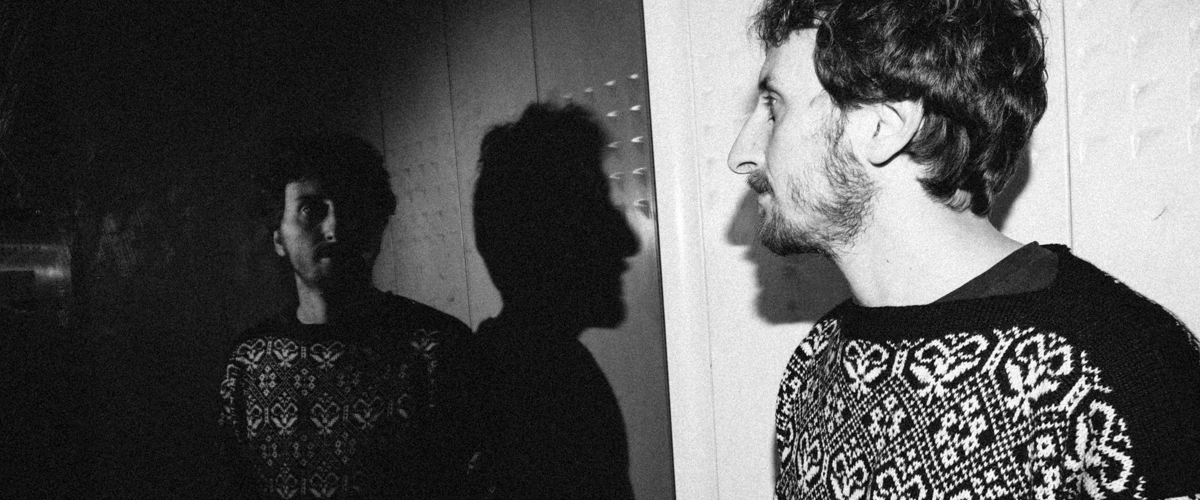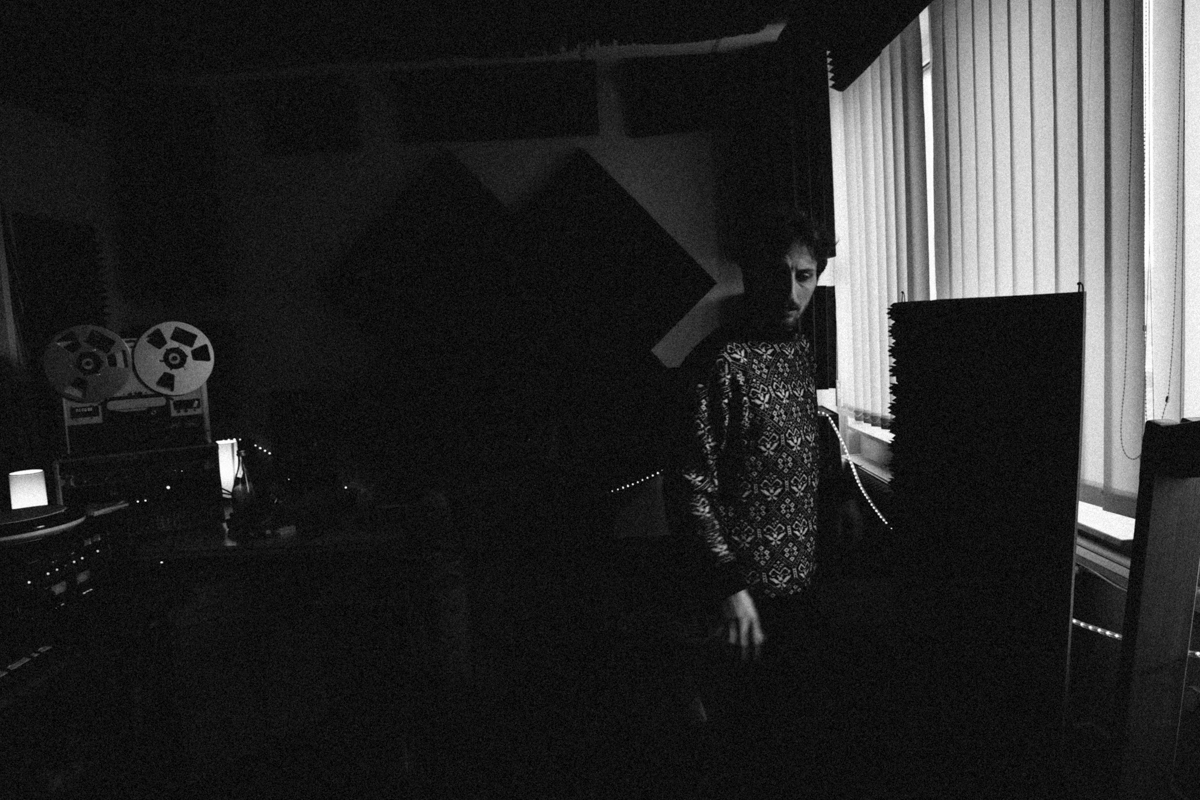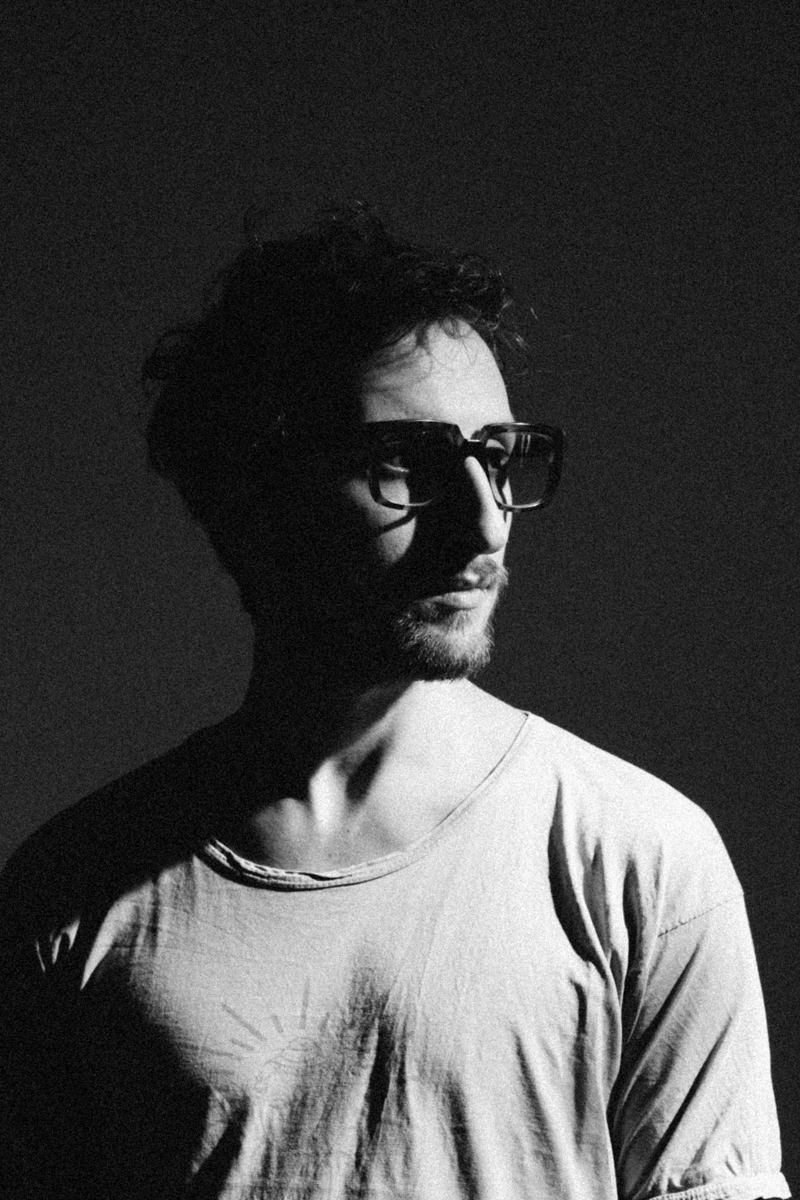Real Talk: Lucy
Luca Mortellaro explores the split between the producer and performing side of artists.

Real Talk: Lucy
Luca Mortellaro explores the split between the producer and performing side of artists.

Real Talk’ is a series of artist-penned essays that appears on XLR8R from time to time.
This month’s submission comes from Luca Mortellaro, the DJ-producer better known as Lucy. The Italian-born, Berlin-based artist has long been something of a central figure in the global techno scene, acknowledged widely for both his studio output and live/DJ sets. Following two well-received LPs—namely 2011’s Wordplay For Working Bees and 2014’s Churches Schools And Guns—Mortellaro recently announced, Self Mythology, his third long-player which is scheduled for May 6 release via his own Stroboscopic Artefacts label.
Sonically speaking, the forthcoming album is different to what you would perhaps expect, drifting considerably closer to ambient, improvisational pastures than anything that Mortellaro has put his artist name to before. But while this release marks a clear progression in Mortellaro’s sound, evidenced throughout is the artistic authenticity that is present in all of his works. Production, as referenced in last year’s In the Studio feature, remains today Mortellaro’s most viable vehicle for self-expression, and serves a very different purpose to his DJing. In this month’s real talk, we invited him to explore the split between these two contrasting sides of the artistic character.
Reflecting on the expression of culture, it is obvious to all of us that contemporary western society is built upon the dichotomy between the public and the private self. This is something that our scene does not escape. We use things. The private self uses things from the outside to present the public self in certain ways. We use things so they contribute to this representation. We do it all the time. Every day. From the point of view of an artist producing music and performing, the product of the private self is no longer the means to present the public self as a performer. I’d like now to go deeper into this aspect of split consciousness.
“What I do when I produce music and release it, is to share an innermost private self, while when I perform something else is often expected of me.”
For a very long time it was all about producing music for me, alone, submerged in my feelings with an almost complete absence of active external stimuli (by “active” I mean, seeing concerts, attending club nights, talking to other producers or DJs). Only subtle stimuli were present (the vinyls I was buying and pirate radio stations I was listening to). The DJ thing came way after, starting as a fun game with friends, and slowly transforming into a real dedication. This is the reason why there is a split between my experience as a producer, and my experience as a DJ. What I do when I produce music and release it, is to share an innermost private self, while when I perform something else is often expected of me. Not to share, but to entertain. Challenging this dogma is what makes me feel like an artist, not like a clown. This gap is not only a matter of episodes, it’s a real emotional gap. It took me years of gigging professionally to find a way to resolve these two aspects to fit into the organic workflow I am in nowadays.

But going one level deeper (or higher, depending on the perspective), these dynamics aren’t just limited to my personal experience, but to a wider social phenomenon: the gradual eclipse of the importance of the producer, and the fast uprising of the performer.
It is a risky process. It is, of course, a phenomenon related to a very clear tendency of the last decade: social networking and the significance it has been given. The result of a massive amount of people projecting their “real” identity into a no-longer faceless web, produces a multi-stage faking process. Let’s keep in mind that reality and representation of reality are not at all the same thing. Representation of reality (and of the self in this case) always contains a substantial amount of constrictions, governed by the social framework around the scene. The main way for a performer to present himself/herself today belongs in the virtual world of social media. Your fans are often invisible to you, aside from when you are actually playing out there. The work of the artist becomes mainly to manage one’s self-representation online. The whole thing becomes: how can I sell myself through my online profile? In the end you will never meet in person most of those who you deal with online—the greater majority of your fanbase. So, the focus drifts from the inward deep research on your own artistic language, to the outward attempt to reach that invisible (and very often so ready to judge without any critical thinking) fanbase.
“In this storm of stimuli and distraction, the focus on your own creative energy is the most precious thing you have left.”
This brings us to the reason why in the music business with which we’re dealing, nowadays an amazing and wild gig snap or video is more important then an EP release. But do we really care? I don’t. In this storm of stimuli and distraction, the focus on your own creative energy is the most precious thing you have left. It’s your last anchor to a non-fake world, to real perception, to an authentic way of digesting your experiences, traumas and joys, and to allow you to transform them into a wonderful and powerful piece of art. It’s your last chance to not forget about what I call “the message.” Not the one of virtual mirrors (social networks), but the one of your deeper feelings and tendencies. The one that makes you a real human in all your complexity and paradoxes, your chaos and unpredictability. If you lose it, you could be successful or not, but I doubt you will be happy. And it’s not even about happiness (as it’s actually not about being successful either), it’s about not finding out after many years that you are nothing other than a funny monkey in a grotesque circus. Just a mask in the theatre, a walk-on actor that could be you or anyone else in your position. David Bowie‘s precious words come to my mind: “Oh man, wonder if he’ll ever know. He’s in the best selling show.”

If one manages to keep this in mind, and to hold strong to your own values, then magic can actually happen. Regarding my personal experience in the electronic music scene, I am talking about those moments, those divine moments of verticality that happen when the social ritual of dancing to obsessive music on one side (the crowd) and choosing, mixing and/or manipulating that music on the other side (the performer) becomes one. Then the private and public self merge together in a moment of unity when all masks fall down (not really all of them, but still…), with those few moments when you feel so at one with the crowd that the split dissolves, as well as those moments when you manage to get to the deepest corner of your listeners’ soul with the music you produce.
Photos: Nico Stinghe

